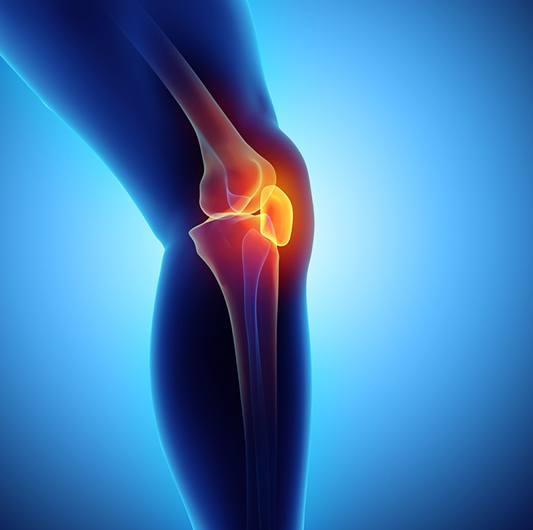
Osteoarthritis (OA) is the most common chronic joint condition, affecting more than 27 million Americans. While there is no cure for OA, there are steps you can take to manage your symptoms, slow down the progression of this disease and live well with osteoarthritis.
Weight management
Maintaining a healthy weight is one of the most effective things you can do to help you live well with osteoarthritis. Because osteoarthritis is a progressive disease where the underlying bone and cartilage break down in the joint, if you are carrying extra weight this will cause undue stress on the joint and will increase joint damage.
If weight management is a challenge for you, you should speak with your doctor to create a weight loss plan.
Physical activity
Research has shown that exercise is extremely helpful to reduce joint pain and improve mobility for people with osteoarthritis. Your exercise routine should incorporate a mix of stretching, strength training and cardiovascular exercises like walking, the elliptical or swimming. Try to get at least 30 minutes of cardiovascular activity on most days, and do strength training at least two times per week.
Healthy diet
There is no conclusive evidence to suggest that what you eat can make your osteoarthritis worse, but in general a healthy diet is essential for a healthy body. You need an adequate supply of energy, vitamins and minerals from your diet to help keep your immune system strong, and give you energy to get through your daily tasks and activities. A healthy diet will also help manage your weight.
Pack your diet full of fruits, vegetables, healthy fats, whole grains and lean proteins while reducing your intake of sugar and processed foods.
Medications
There are many medications available to help you manage the effects of osteoarthritis including injections, pills, and topical treatments. Make sure you speak with your doctor to discuss what medications are right for you.
Working with healthcare professionals
Adding a physiotherapist and occupational therapist to you healthcare team can be extremely beneficial. An occupational therapist will be able to advise on various assistive devices or adaptations you can make in your home and work life to live better. A physiotherapist will be able to provide rehabilitation for the damaged joint and create a customized exercise program to make sure you’re working for your body and not against it.
If joint damage is severe, it’s also important to see a doctor that specializes in orthopedic care. Because there is no cure for arthritis, joint replacement surgery is the only option to provide relief. An orthopedic surgeon will consult with you to see if joint replacement surgery is the proper course of treatment.
OCPBC and arthritis care
At OCPBC we have a wide range of specialists including orthopedic surgeons, occupational therapist and physiotherapists that can help you manage your osteoarthritis. Please call us at (561)967-6500 to make an appointment.





